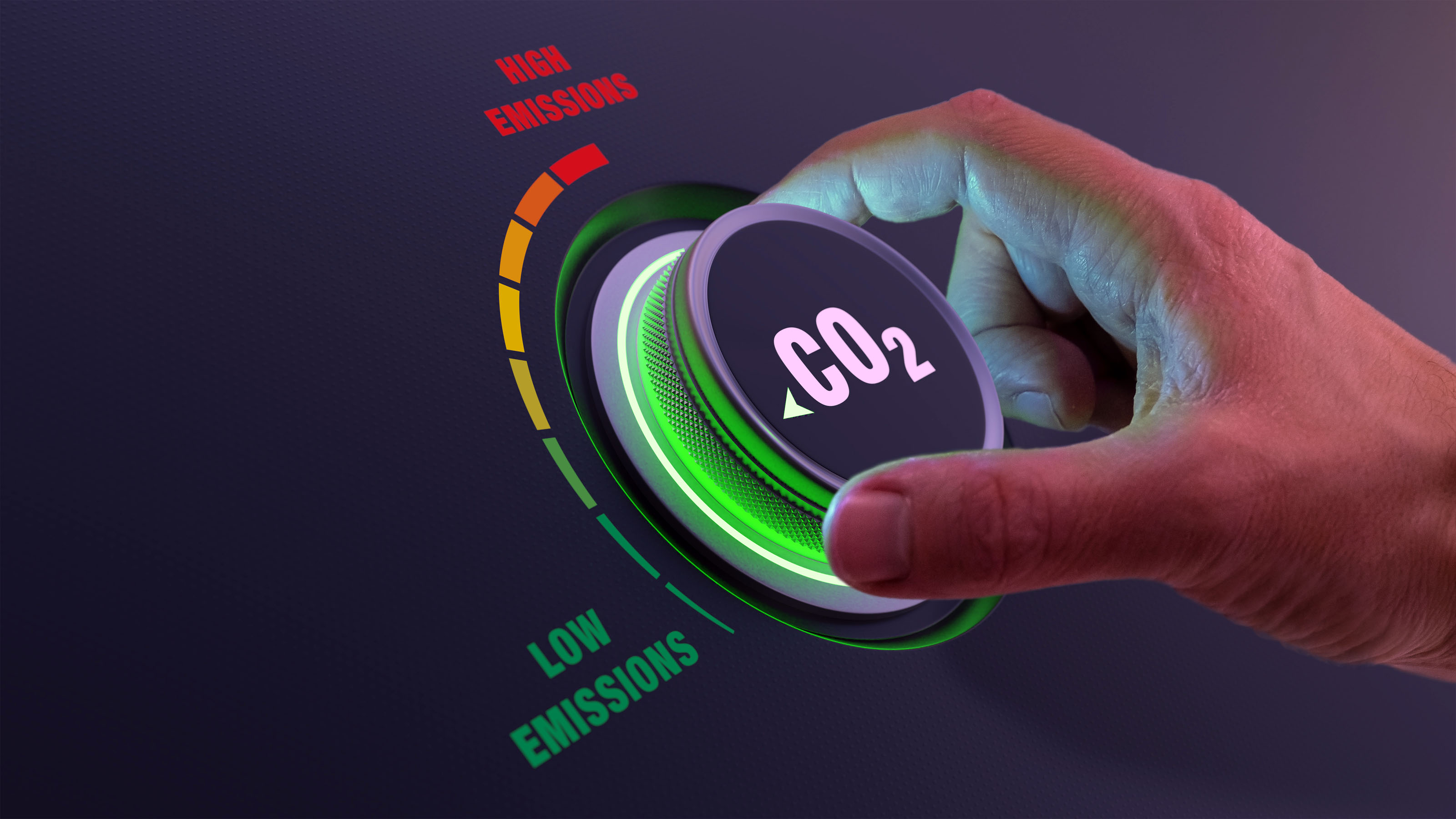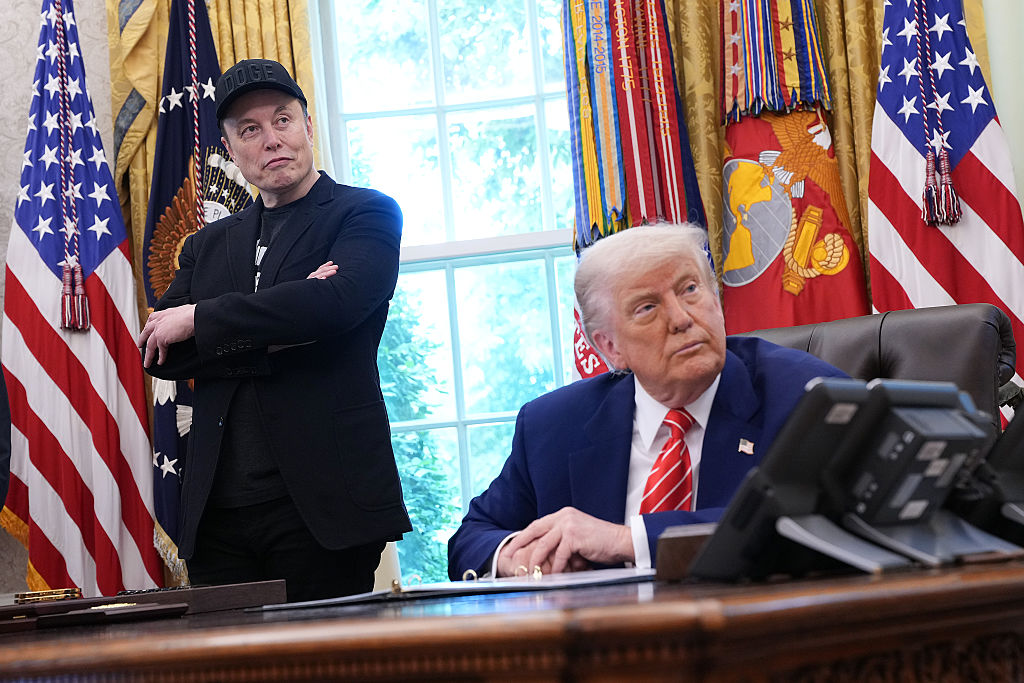How Senate Breakthrough on Climate Could Benefit ESG Investors
Portions of the Inflation Reduction Act of 2022 have the promise of more revenue and tax credits for companies making products that help fight climate change.


Profit and prosper with the best of Kiplinger's advice on investing, taxes, retirement, personal finance and much more. Delivered daily. Enter your email in the box and click Sign Me Up.
You are now subscribed
Your newsletter sign-up was successful
Want to add more newsletters?

Delivered daily
Kiplinger Today
Profit and prosper with the best of Kiplinger's advice on investing, taxes, retirement, personal finance and much more delivered daily. Smart money moves start here.

Sent five days a week
Kiplinger A Step Ahead
Get practical help to make better financial decisions in your everyday life, from spending to savings on top deals.

Delivered daily
Kiplinger Closing Bell
Get today's biggest financial and investing headlines delivered to your inbox every day the U.S. stock market is open.

Sent twice a week
Kiplinger Adviser Intel
Financial pros across the country share best practices and fresh tactics to preserve and grow your wealth.

Delivered weekly
Kiplinger Tax Tips
Trim your federal and state tax bills with practical tax-planning and tax-cutting strategies.

Sent twice a week
Kiplinger Retirement Tips
Your twice-a-week guide to planning and enjoying a financially secure and richly rewarding retirement

Sent bimonthly.
Kiplinger Adviser Angle
Insights for advisers, wealth managers and other financial professionals.

Sent twice a week
Kiplinger Investing Weekly
Your twice-a-week roundup of promising stocks, funds, companies and industries you should consider, ones you should avoid, and why.

Sent weekly for six weeks
Kiplinger Invest for Retirement
Your step-by-step six-part series on how to invest for retirement, from devising a successful strategy to exactly which investments to choose.
“Gobsmacked” best describes the mood among congressional Democrats and environmental advocates yesterday. After months of difficult negotiations with Sen. Joe Manchin (D.-W.Va), a small group of senators secured his support for a $369 billion climate package that is part of the Inflation Reduction Act of 2022.
The bill still faces some obstacles. All fifty Senate Democrats must vote in favor of the bill next week, and that means showing up in person at a time when lawmakers have been sidelined by COVID. Plus, Sen. Kyrsten Sinema (D-Ariz.) still has not given her approval; the word is that she bristled at being left out of the negotiations. Plus, it will have to pass the House, where the Democrats’ margin is thin.
But for companies that prioritize environmental, social and corporate governance, the bill has substantial promise – and could give their shares a boost. Here’s why.
From just $107.88 $24.99 for Kiplinger Personal Finance
Become a smarter, better informed investor. Subscribe from just $107.88 $24.99, plus get up to 4 Special Issues

Sign up for Kiplinger’s Free Newsletters
Profit and prosper with the best of expert advice on investing, taxes, retirement, personal finance and more - straight to your e-mail.
Profit and prosper with the best of expert advice - straight to your e-mail.
Electric vehicles (EVs) are flying off dealer lots, but they still typically cost more upfront than gas-powered cars. The climate package would extend and modify the tax credits that have been available to offset these higher costs. From an investors’ point of view, the most significant change is that a popular tax credit (extended to the car buyer) of up to $7,500 on new EVs would again be available on some models. Because Tesla (TSLA) and General Motors (GM) had already exhausted their allotted tax credits, this renewal would allow some buyers to potentially claim the $7,500 tax credit. For example, the base price of a new Model 3 Tesla would drop from about $47,000 to $39,500. Expect Tesla and GM’s sales performance to benefit as well, assuming the auto companies can secure the battery components and semiconductor chips necessary to keep up with demand. Note also that the new bill would impose income limits ($150,000 adjusted gross income for singles, $300,000 for couples) on claiming that credit, plus impose caps on the cost of the vehicle itself ($80,000 MSRP for trucks, $55,000 MSRP for cars).
Homeowners can receive up to $1,200 per year for insulation projects, $2,000 for installing heat pumps (which provide highly efficient heating and cooling) and $600 per year for efficient windows. U.S. heat pump manufacturers like Carrier Control (CARR) may also receive tax incentives. And homeowners at risk from coastal flooding or wildfires could benefit from the bill’s grants to protect coastal communities and create fire-resilient forests.
The renewable energy power sector would enjoy tax credits that could be applied to any type of low- or zero-carbon technology, such as wind or solar projects. Unlike past incentives that expired every couple of years, often undermining the industry’s ability to plan and grow, these tax incentives would last for ten years.
Domestic manufacturing of energy transition products, like solar panels, EV batteries, and wind turbines, would also benefit. First Solar (FSLR) said it would consider expanding US manufacturing if the deal passes.
Overall, investors with a focus on a transition to a low-carbon economy should enjoy a boost if the Inflation Reduction Act passes. After being trounced by high fossil fuel prices and piled on by critics over the past few months, ESG investors may shortly have their day in the sun.
Profit and prosper with the best of Kiplinger's advice on investing, taxes, retirement, personal finance and much more. Delivered daily. Enter your email in the box and click Sign Me Up.

Ellen writes and edits retirement stories. She joined Kiplinger in 2021 as an investment and personal finance writer, focusing on retirement, credit cards and related topics. She worked in the mutual fund industry for 15 years as a manager and sustainability analyst at Calvert Investments. She earned a master’s from U.C. Berkeley in international relations and Latin America and a B.A. from Haverford College.
-
 5 Vince Lombardi Quotes Retirees Should Live By
5 Vince Lombardi Quotes Retirees Should Live ByThe iconic football coach's philosophy can help retirees win at the game of life.
-
 The $200,000 Olympic 'Pension' is a Retirement Game-Changer for Team USA
The $200,000 Olympic 'Pension' is a Retirement Game-Changer for Team USAThe donation by financier Ross Stevens is meant to be a "retirement program" for Team USA Olympic and Paralympic athletes.
-
 10 Cheapest Places to Live in Colorado
10 Cheapest Places to Live in ColoradoProperty Tax Looking for a cozy cabin near the slopes? These Colorado counties combine reasonable house prices with the state's lowest property tax bills.
-
 Why I Trust These Trillion-Dollar Stocks
Why I Trust These Trillion-Dollar StocksThe top-heavy nature of the S&P 500 should make any investor nervous, but there's still plenty to like in these trillion-dollar stocks.
-
 Elon Musk's $1 Trillion Pay Package Passes: What's at Stake for Tesla Stock
Elon Musk's $1 Trillion Pay Package Passes: What's at Stake for Tesla StockMore than 75% of Tesla shareholders voted to approve a massive pay package for CEO Elon Musk. Here's what it means for the Mag 7 stock.
-
 The Riskiest S&P 500 Stocks Right Now
The Riskiest S&P 500 Stocks Right NowBuyer beware: These are five of the riskiest stocks in the S&P 500 at the moment, based on one measure of volatility.
-
 Stock Market Today: Wall Street Is Standing By
Stock Market Today: Wall Street Is Standing ByThe waiting is the hardest part with trade war truce talks underway and inflation data on the way.
-
 Stock Market Today: Stocks Stable as Inflation, Tariff Fears Ebb
Stock Market Today: Stocks Stable as Inflation, Tariff Fears EbbConstructive trade war talks and improving consumer expectations are a healthy combination for financial markets.
-
 Stock Market Today: Good Feelings and Solid Data Lift Stocks
Stock Market Today: Good Feelings and Solid Data Lift StocksResilience and de-escalation defined another generally positive day for financial markets.
-
 Stock Market Today: Tesla Drags on Stocks Amid Musk-Trump Feud
Stock Market Today: Tesla Drags on Stocks Amid Musk-Trump FeudSentiment has soured between President Trump and his once-loyal ally, Tesla CEO Elon Musk.
-
 Why General Motors Stock Is Sinking After Its Earnings Beat
Why General Motors Stock Is Sinking After Its Earnings BeatGeneral Motors stock is moving sharply lower Tuesday even after the automaker reported a fourth-quarter earnings beat. Here's what you need to know.